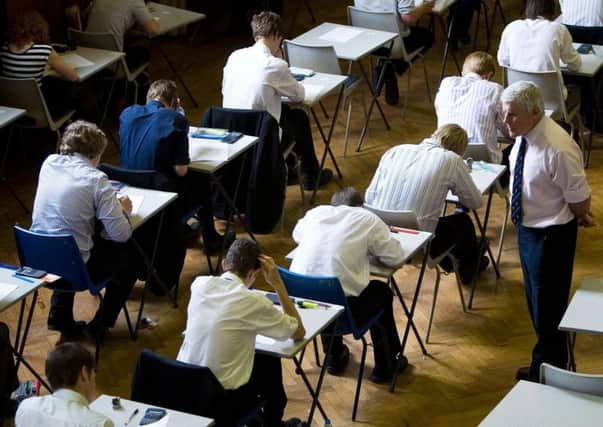Column: We've all got a role to play in improving social mobility


I watched Generation Gifted BBC2’s recent exploration of social mobility which asked the question ‘can disadvantaged children succeed in the same way as their more affluent peers?’ with interest.
Doncaster is ranked 301st out of 324 boroughs in the Government’s Social Mobility Index.
Advertisement
Hide AdAdvertisement
Hide AdThere are thousands of children in Doncaster like the six teenagers featured on the programme, bright but with the odds stacked against them. Poverty is only one of the issues; in 2018 poverty often comes hand in hand with myriad other issues, including family breakdown, physical and/or mental ill heath, drink or drug abuse. They also live in a borough that has been battered by decades of economic decline, where aspiration and ambition are yet to catch up with the improving fortunes of the area.
So What’s to do? The Department of Education’s Doncaster Opportunity Area 2017-20, a plan to drive social mobility through educational improvement, is underway to be delivered by a multi-agency collaboration. It all sounds on the right rack: building solid foundations for all children,brilliant teaching, opportunities for all, proper career advice.
A couple of things struck me as particularly interesting; the £2.75 life skills programme - which is, sadly, desperately needed, and the move to look alternatives to fixed term exclusions in schools.On the latter, it’s about time. Over the years this newspaper has carried so many stories with exasperated parents complaining that their excluded kids were only getting worse through not being in the school environment. It may mmake life easier for the schools, but it ccertainly doesn’t help the kids - or their families.
Which brings me on to one thing I did think odd in the report. I could only find one specific mention of families (in a sector on a coaching and mentoring programme to keep young people in school). Perhaps its taken as read that families are involved?
Advertisement
Hide AdAdvertisement
Hide AdThe parents in the TV programme were admirable in their desire to support their kids, but often these struggling families coping with huge daily pressures didn’t know what to do.
The featured teens were very different, but one thing did affect them all as they tried to fulfil their academic potential; cramped housing. These kids had no space of their own. to read,work or unwind.
One practical solution to help could be the creation of homework clubs in schools, a cosy, quiet space where they could work.
This plan is to improve social mobility through education, but it can’t all be down to schools. Families need support to be a positive influence and more than just a handful of employers need to sign up to be part of the solution.